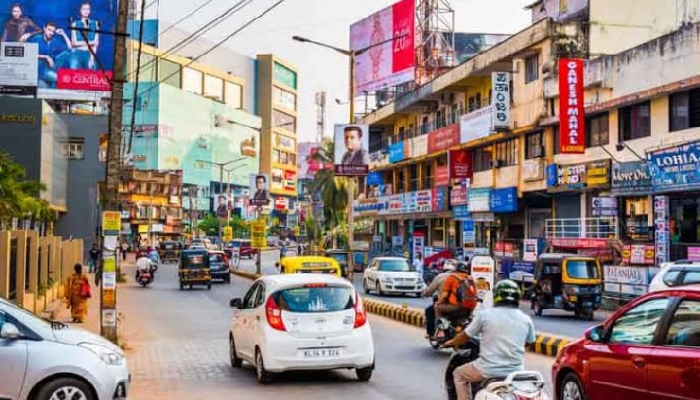Bengaluru, July 22: Complete lockdown on Sundays and daily night curfew would continue across Karnataka to contain the coronavirus spread, a top officia.
"Though lockdown will be lifted from 5 am on Wednesday across the state, night curfew will continue daily from 9 pm to 5 am to restrict movement of people and vehicles. Total lockdown on Sundays will also continue on July 26 and August 2," said state Chief Secretary T.M. Vijaya Bhaskar in an order here.
The order to unlock Bengaluru and four other districts - Dakshina Kannada, Dharwad, Kalaburagi and Kodagu, which have been under 7-9 day lockdown since March 14 night came after Chief Minister B.S. Yediyurappa declared that lockdowns would not be re-imposed across the state hereafter.
Besides restrictions in containment areas to control the virus spread, the order banned reopening of gyms and prevented use of benches in parks by walkers or joggers.
"All vegetable and fruit markets in cities and towns across the state will be shifted to the suburbs or outskirts to decongest them and prevent crowding," said the order in Kannada.
Wearing mask, sanitising hands and maintaining social distancing will be strictly enforced and violators will be fined.
Suburban train and metro services will continue to remain shut till further orders.
Select long-distance express trains will continue to operate as per the standard operating procedure given by the Union Ministry of Home Affairs on May 30.
"State-run and private buses in cities and on intra-state and inter-state routes will operate with limited number of passengers to ensure physical distancing. All buses will be sanitized and fumigated after every trip," said the order.
Schools, colleges, cinema theatres, multiplexes will remain shut to prevent crowding and violation of social distancing.
Ban on religious functions and mass gatherings will also continue.






Comments
Add new comment